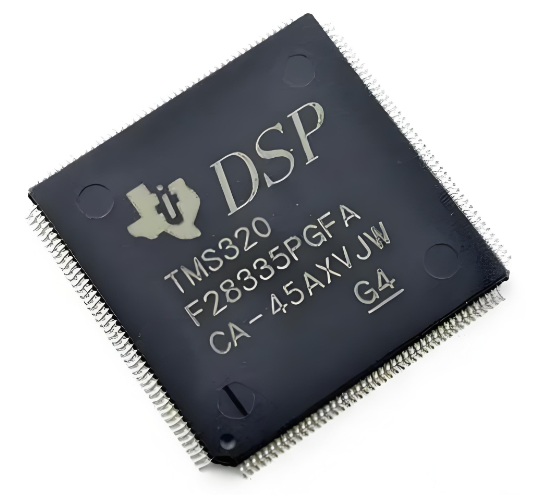
A Digital Signal Processor (DSP) is a specialized microprocessor designed to execute complex mathematical operations on digital signals in real time. Unlike general-purpose CPUs, DSPs are optimized for tasks like filtering, modulation, compression, and analysis of audio, video, and sensor data, making them integral to modern technology across industries.
DSPs process analog signals that have been converted to digital form (via ADCs) using algorithms tailored for speed and efficiency. Their architecture includes:
-
Parallel Processing Units: Enabling simultaneous execution of multiple mathematical operations (e.g., FFTs, convolution).
-
Specialized Instruction Sets: Optimized for multiply-accumulate (MAC) operations, critical for signal filtering and transformation.
-
Low Latency Design: Minimizing delay between input and output, essential for real-time applications.
-
Speed: Handles millions of operations per second (MOPS) to process signals without lag.
-
Efficiency: Performs complex tasks with lower power consumption than general CPUs, ideal for battery-powered devices.
-
Flexibility: Programmable to adapt to diverse signal types (audio, radar, medical scans) via software updates.
-
General-Purpose DSPs: Versatile chips used in audio equipment, smartphones, and industrial sensors.
-
Specialized DSPs: Optimized for specific uses, such as:
-
Audio DSPs: Power noise cancellation in headphones and surround sound systems.
-
Wireless DSPs: Enable 5G/6G communication, handling modulation/demodulation in base stations.
-
Automotive DSPs: Process data from radar/LiDAR in ADAS (Advanced Driver-Assistance Systems) for collision detection.
DSPs are critical in:
-
Communications: 5G networks, Wi-Fi routers, and satellite systems rely on DSPs for signal modulation.
-
Audio/Video: They enhance sound quality in speakers, enable voice recognition (e.g., smart assistants), and compress video for streaming.
-
Industrial IoT: Process sensor data in manufacturing for predictive maintenance and quality control.
-
Medical Devices: Power ultrasound machines, ECG monitors, and hearing aids, processing biological signals accurately.
-
Aerospace & Defense: Used in radar systems, drones, and military communications for real-time signal analysis.
Top manufacturers include Texas Instruments (TMS320 series), Analog Devices (SHARC processors), and NXP Semiconductors. Emerging trends focus on:
-
AI Integration: DSPs with neural network accelerators for edge AI applications (e.g., real-time object detection).
-
Low-Power Designs: Extending battery life in wearables and IoT sensors.
-
High-Speed Processing: Supporting 8K video, 6G, and autonomous vehicle workloads.
SEO Keywords: DSP, Digital Signal Processor, audio signal processing, 5G DSP, ADAS DSP, real-time signal processing, TI DSP, IoT signal processing.
DSPs remain indispensable in a world driven by real-time data, enabling the performance and efficiency of countless technologies we use daily.
